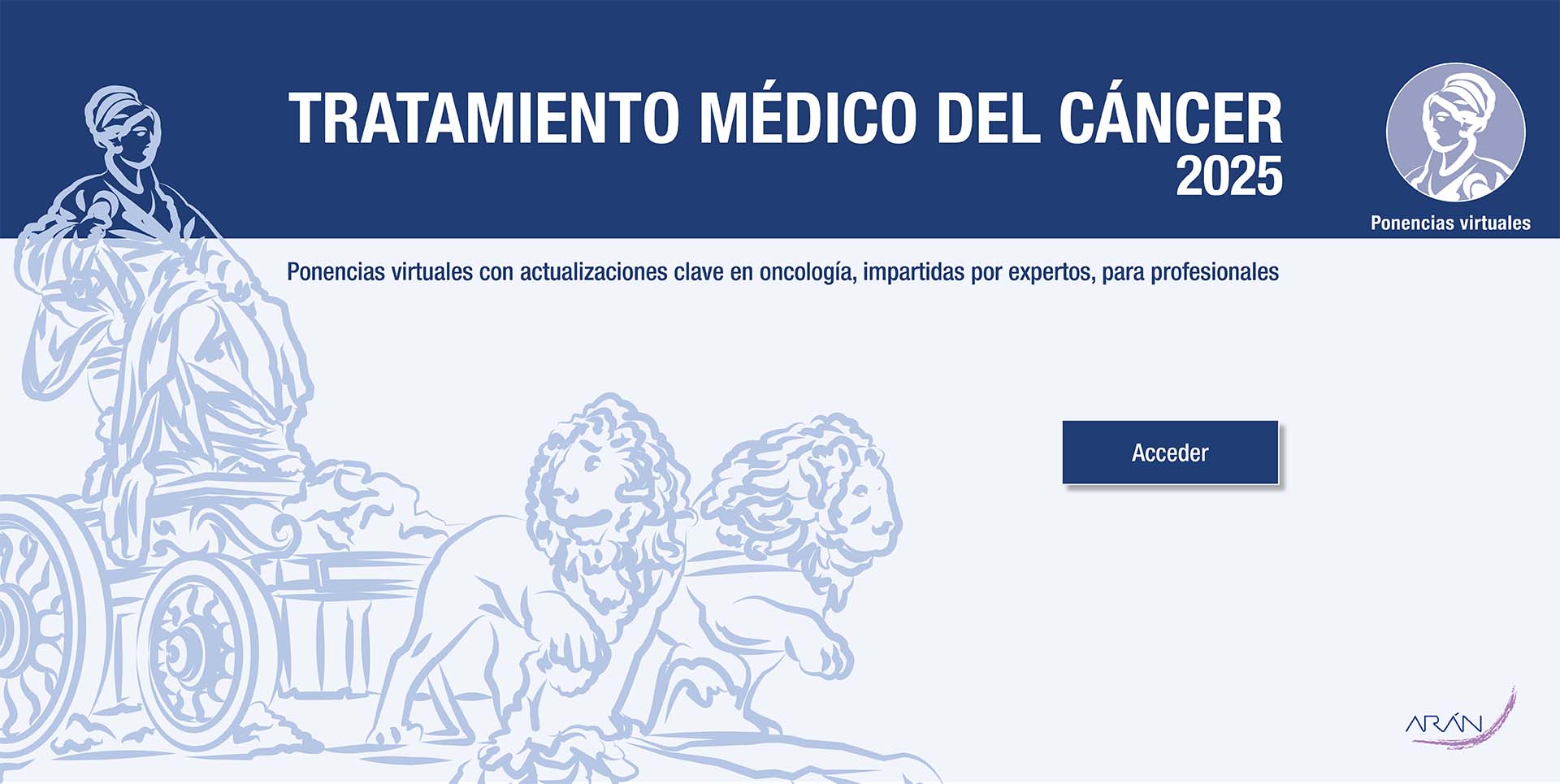Oncomedic
Somos el mayor portal de recursos de oncología
Con la creación de esta plataforma, pretendemos proporcionar un medio que unifique todo lo que el oncólogo necesita en el día a día, de forma dinámica y actualizada, sin necesidad de tener que abrir diferentes aplicaciones o páginas web.
Novedades
El papel de los TTFields en glioblastoma
Santiago Cabezas Camarero
Hospital Clínico San Carlos. Madrid
Trazando un nuevo camino en HER2-low
Elena Aguirre Ortega
Hospital Quirón Salud. Zaragoza
Cáncer de mama triple negativo: inmunoterapia, ¿cuál y cuánto tiempo?
Begoña Bermejo de las Heras
Hospital Clínico Universitario de Valencia. València
Comprehensive molecular characterization of high-stemness gastric cancer cells using single-cell transcriptomics, spatial mapping, and machine learning
Gastric cancer (GC) remains a global clinical challenge due to late diagnosis, high heterogeneity, and poor prognosis. Tumor stemness has emerged as a key factor driving tumor aggressiveness and therapeutic resistance. However, the systematic characterization of high-stemness GC cells and their molecular features remains limited. We integrated single-cell RNA sequencing (scRNA-seq), spatial transcriptomics, and bulk RNA-seq data to identify and characterize high-stemness GC cells.
Incorporación de la inmunoterapia en el tratamiento del cáncer de cuello uterino
Raúl Márquez Vázquez
MD Anderson Cancer Center Madrid. Madrid
What is the role of machine learning in oncology today?
Artificial intelligence (AI) is increasingly being integrated across the cancer care continuum, from early detection and diagnosis to treatment selection and clinical trial design. Standardized metrics are needed to ensure adequate, reliable machine learning model performance and clinical relevance across diverse settings. Becoming fluent in the language of AI will empower oncologists to participate in shaping the role of new technologies in oncology research and practice.
CPNMm y PD-L1 < 1 %, ¿estamos ofreciendo las mismas oportunidades a todos los pacientes en primera línea?
Antonio Calles Blanco
Servicio de Oncología Médica. Hospital General Universitario Gregorio Marañón. Madrid
El papel de la inmunoterapia en tumores digestivos agnósticos MSI-H/dMMR
Nuria Rodríguez Salas
Hospital Universitario La Paz. Madrid



.png)
.png)







.png)
.png)
.png)
.png)
.png)
.png)
.png)
.png)
.png)